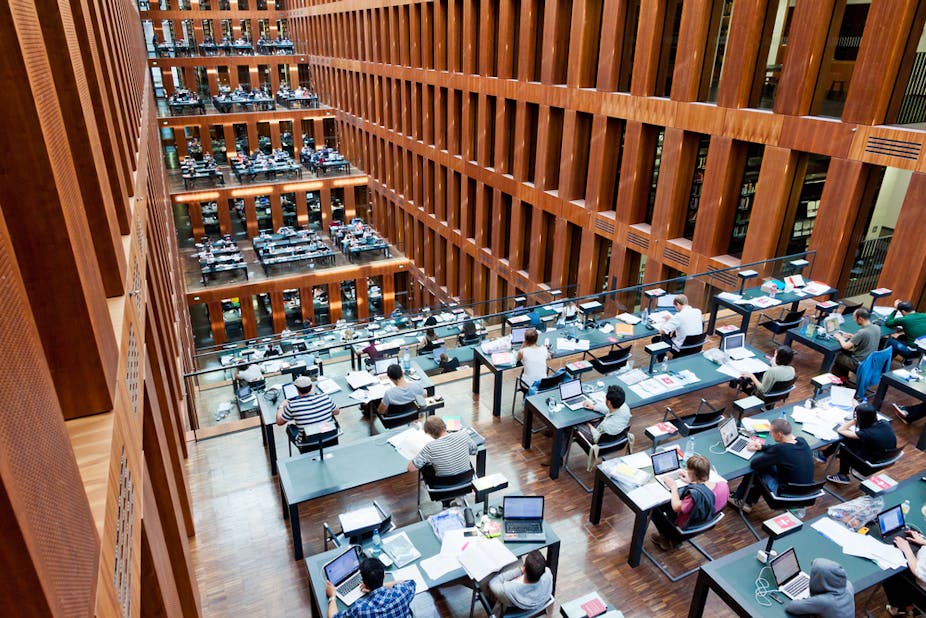There is no such thing as a free lunch – or free open access.
Silicon Valley futurist, Steward Brand, states that all information should be made available for free. But his corollary is that:
… information wants to be expensive because it is so valuable…
There is always a value chain, and costs are incurred, on a continuing basis, whatever the platform that houses it. Someone somewhere is paying for open access publishing.
Open access, which stands for unrestricted access and unrestricted reuse of published materials, took off in 2012 and is driven by the promise of wider exposure of articles that can be freely read by anyone connected to the Internet.
Open access publishers offer different author-pays models:
In gold open access, the author, their funder or institution pays while readers browse at no charge. Universities pay the Internet data charges.
‘Green’ open access, following peer review, enables authors to upload their post-print versions on their own institutional repositories. These are managed by the universities in which authors work.
‘Read-only’ versions, whereby browsers can access documents but they can’t be downloaded or copied, are an increasing phenomenon to enable access.
Independent open access journals that do not impose an author-pays model - including article processing or submission fees- are largely housed and maintained on institutional websites. They are managed and edited by volunteers. Such journals tend to disappear when the original editors move on, or when a web site crashes, or when funds become tight or a university policy changes. Their content is thus not always secure.
Hundreds of open access journals are available on platforms like Scientific Electronic Library Online, a platform supported by the South African government. But many titles are simply one-off sites located on individual university webs.
Many foundations, donors and universities do pay for open access exposure. A one-time payment buys this status - provided that the host remains in business. But the costs can be very steep. This is one of the advantages of Scientific Electronic Library Online. But it lacks the full-house of services offered by the commercial publishers. At the end of the day, it’s a question of what business models work for which journals.
What the commercial model offers
Commercial publishers’ paywalls are usually, though this differs between publishers, complemented with 50 free electronic offprints and permission to upload pre-typeset versions on personal and institutional websites. Scholars can approach individual authors and request copies of their papers via the publisher, email, or via an array of professional networking sites like ResearchGate, Linked-in, Kudos and Academic.edu. Some publishers allocate one number annually as open access.
Commercial publishers provide the following services charged to the journal but not to authors:
- proofreading,
- design and layout,
- typesetting and production,
- legal services and copyright protection,
- computerised management and tracking of submissions, and
- archiving of peer review reports.
These administrative services are complemented by global marketing; distribution to thousands of subscribing libraries, and conference sponsorship. They offer regular writing, editing and training workshops, seminars on copyright law, indexing, publishing and marketing. Many publishers offer affordable pricing options to developing countries.
Journals licensed to a publisher can retain copyright and many permit their authors to make free copies of their own articles for class use. The corporates offer critical marketing mass; their websites dynamically cross-index similar topics within their respective stables.
Taylor & Francis in particular, via a development strategy with selected South African journals, initially facilitated by the National Research Foundation and Unisa Press, helped to position many of these titles as global, rather than only local. In so doing, they catapulted South African authors into global research networks.
Permission charges enable journals, publishers and authors to earn their livings. Denying them income and making their intellectual labour ‘free’ is not an option for any of them. Not all authors are fully employed; few academics earn market-related salaries, and many authors earn a living via their writing.
South African authors earn a state subsidy for their institutions on publications in approved lists. Universities invariably use this to cover the costs of research support and development. Some authors concede a portion as taxable salary.
In an academic world ever more infiltrated by fraudsters, con artists and pirates, one can still trust the content and academic integrity of scientific society journals and long-standing corporate publishers. They protect against article and journal cloning, identity theft, bogus journals, forgery, author substitution, fake metrics, and prevent outright intellectual property theft.
What open access lacks
Open access journals, unless connected to a reputable publishing house, lack all of the above services, protections and brand value.
Of concern is that electronic subscription costs have by far outstripped inflation. There is a reason for this. Academic enterprise demands that all lecturers and even graduate students produce multiple peer reviewed articles annually.
Universities everywhere are driving (over-)supply of product, in an environment where consumer demand is not keeping pace. In normal economics, an oversupply would see a drop in price. But in academia, the market is kept afloat artificially by the imposition of publishing targets set by individual universities irrespective of intellectual impact or significance.
Publishers have responded by providing the production capacity that is needed by university research and human resources departments.
Open access is not simply a matter of access to free articles. Readers need the infrastructural means for accessing online content. In the Global South access is impeded by exorbitant costs of bandwidth. And authors should not be written out of the analysis. Without authors there is no information.
We failed to provide a full disclosure of this author’s relationship with a publishing house for which we apologise. He provided full disclosure at the bottom of his original article. This was removed in the editing process. These details were not included in the disclosure statement as they should have been. This has now been remedied.

